Have you ever looked at an old pirate map and wondered what was up with those creepy looking monsters? For centuries, seafarers would create these maps and populate them with horrible creatures that they supposedly encountered. These creatures were likely just dolphins or seals, but without the help of modern marine biology, they seemed like sea dragons in an undiscovered part of the world. It was a time governed by myth, and the stories of these beasts frightened the wives of sailors for generations.
1603: Abraham Ortelius published a map featuring the Steipereidur, a whale-like creature that looks fearsome, but actually fights off other more dangerous beasts to save fishermen.
1555: The Sea Serpent began as a Norwegian myth and continues even today with cryptozooligical sightings of the Loch Ness Monster.
1621: This beast is named Jasconius. Saint Brendan supposedly landed on its back, but took note of the scaly ridges and realized that this was no island.
1573: Most likely an odd bastardization of a sting ray, the Sea Eagle is a particularly horrifying creation by map makers of the era. It was said that if you caught one and presented it to a king, you’d get a hefty reward.
1572: It’s hard to say what inspired this Sea Chimera besides maybe cabin fever hallucinations. It appears to have a serpent’s tail that lights aflame, but also a bird-like face with feathers that shoot out smoke.
1570: Continuing the tradition of the Sirens found in Greek antiquity, Mermaid sightings were common among men who probably hadn’t seen a woman in the many months out at sea.
1560: Sailors of the Mediterranean were fearful of the Cherub Seals, large seals with human child-like faces. However, the real threat was the wolf-like Ziphius who hunted them.
1101: In 12th century Switzerland, it was believed that every land animal had their own seafaring counterpart. Hence the Elephant Fish.
1250: The Kraken is probably the most famous monster in sea lore. Originally a Scandinavian tale, it was said that the most dangerous thing about the beast wasn’t it’s tentacles, but the whirlpool it left in its wake.
1554: The Sea Bishop is an odd concept, as it suggests there is a kingdom of devout mermaid Catholics underwater. This period was plagued with much religious strife, so it made sense that its monsters started taking the form of clergymen.
1539: Olaus Magnus claimed a Sea Swine lurked in the North Sea above Germany. The monster had sharp tusks jetting out of its hog head, dragon’s feet, and several eyes scattered all over its body.
1539: Olaus Magnus claimed that a 12 foot Sea Rhino lived just off the coast of some islands, and had a hankering for giant lobsters.
1567: It got to a point in map making where maps would sell more because of the mythological beasts populating them. So this Sea Camel wasn’t really based on any sighting; it more or less just looked kind of cute.
When looking at these monsters, it kind of makes me long for a mysterious world still populated by these legends. At the same time, sharks are enough to deter me from getting into the water at the beach, so maybe I’m ok without them.
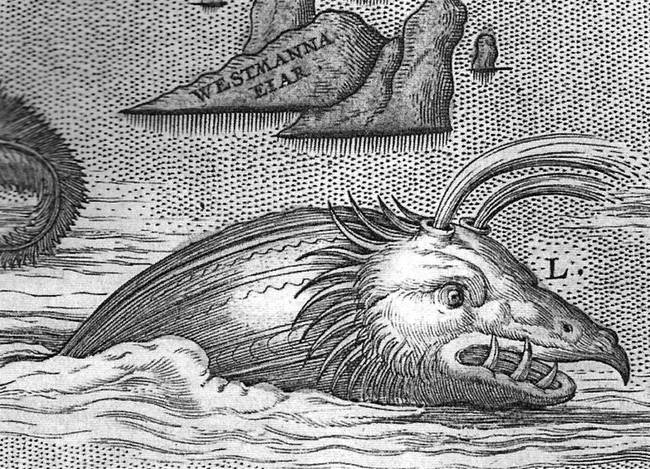 share
share
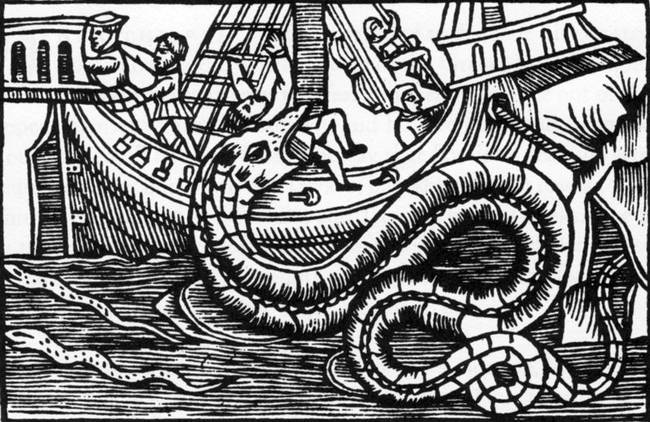 share
share
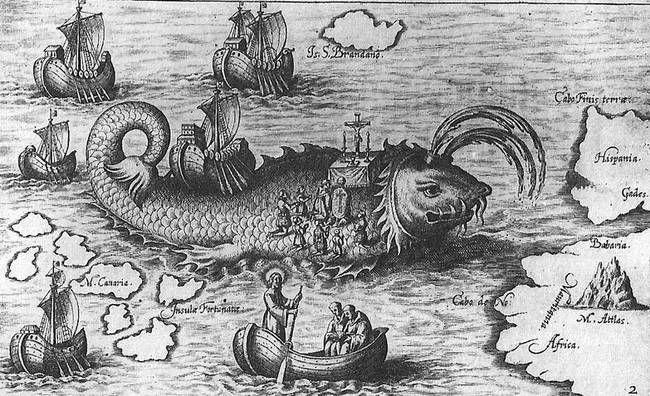 share
share
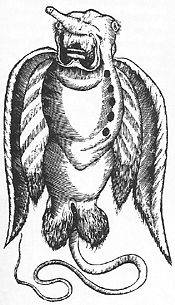 share
share
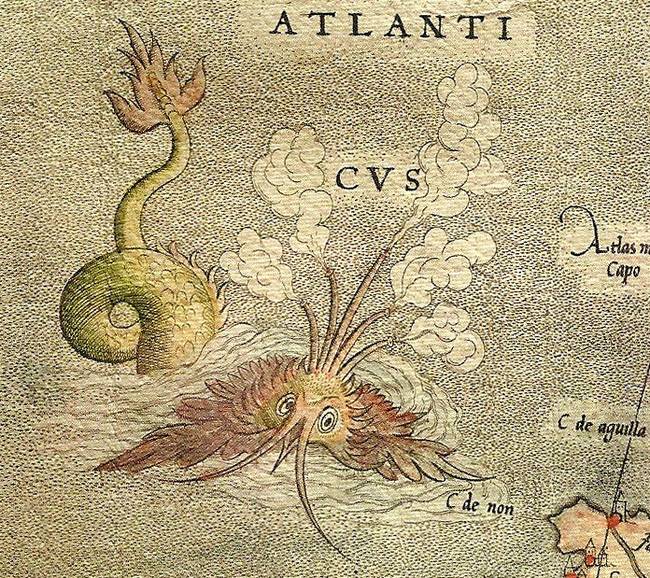 share
share
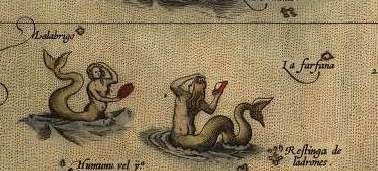 share
share
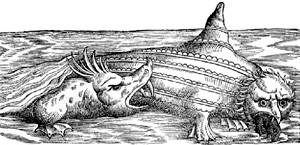 share
share
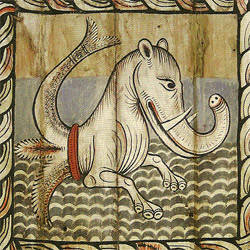 share
share
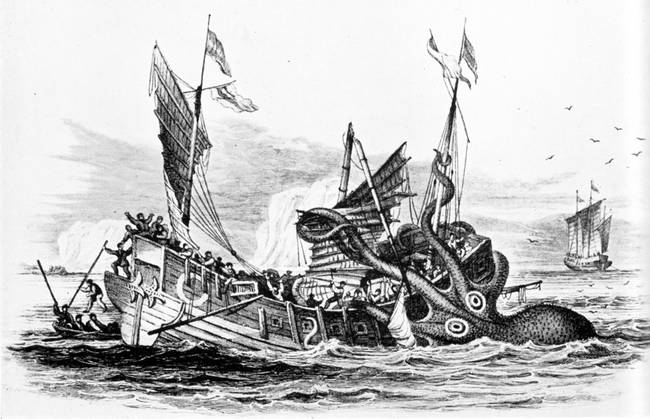 share
share
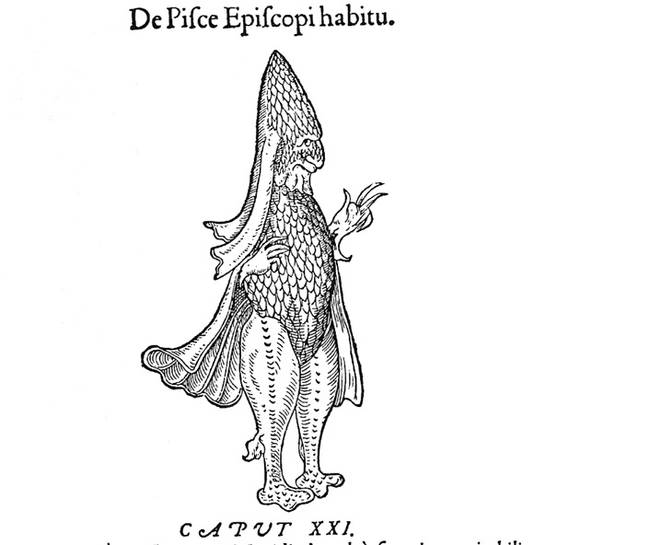 share
share
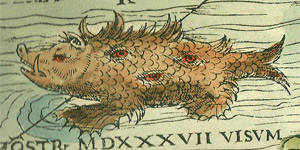 share
share
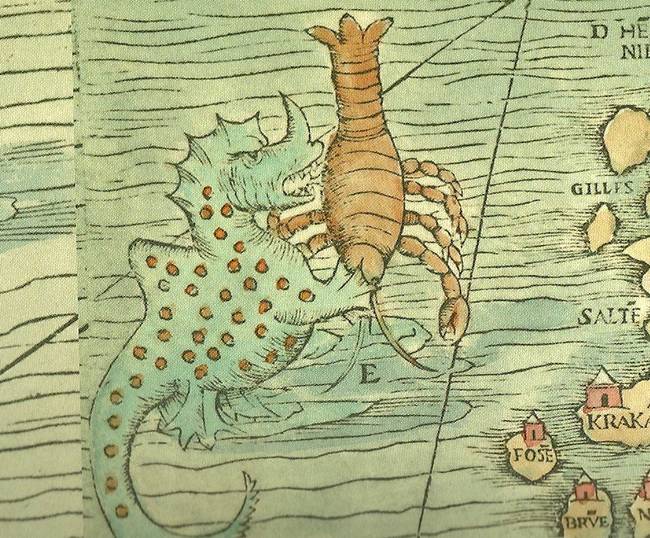 share
share
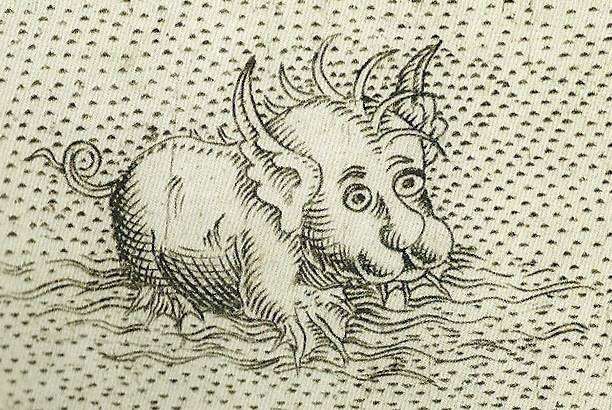 share
share



